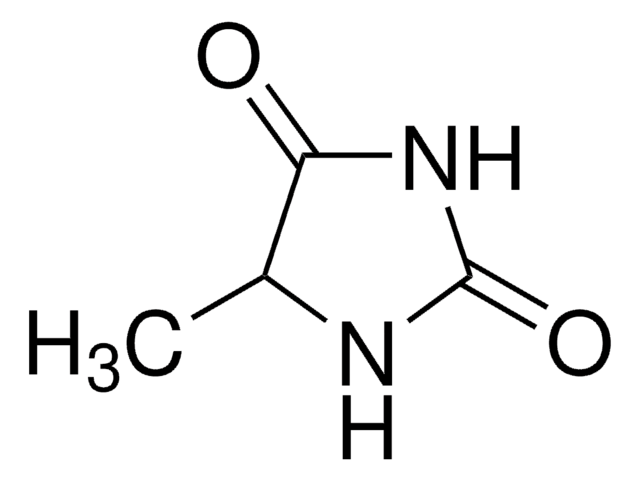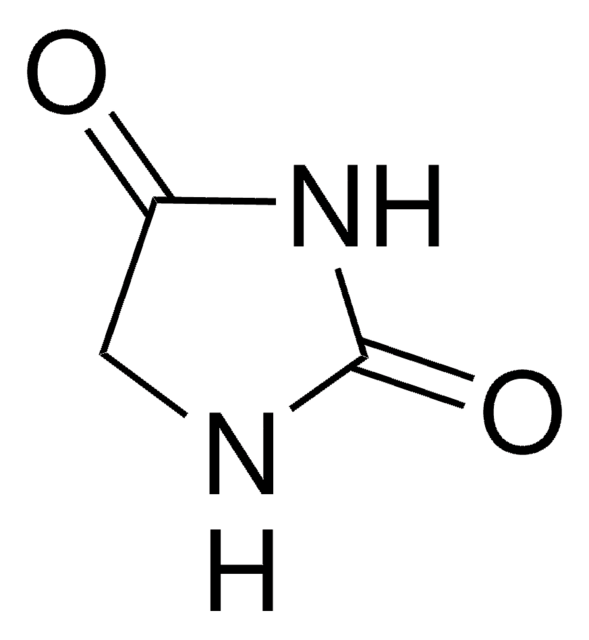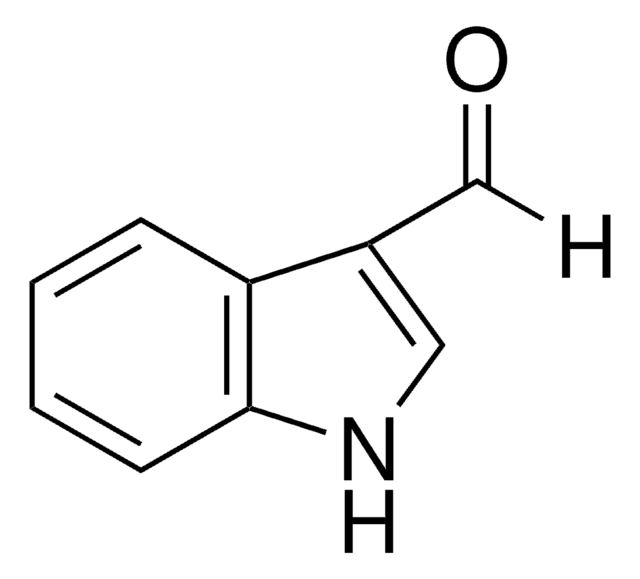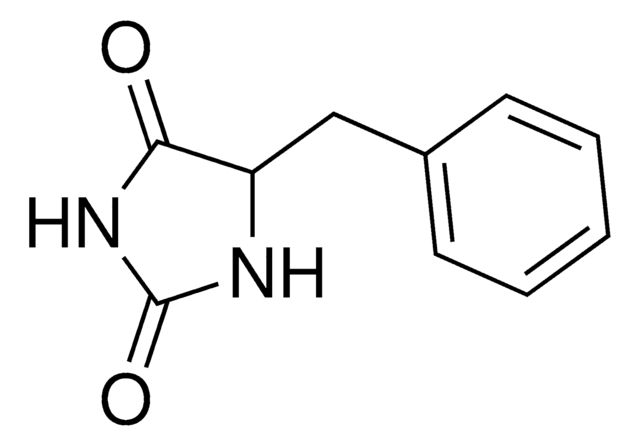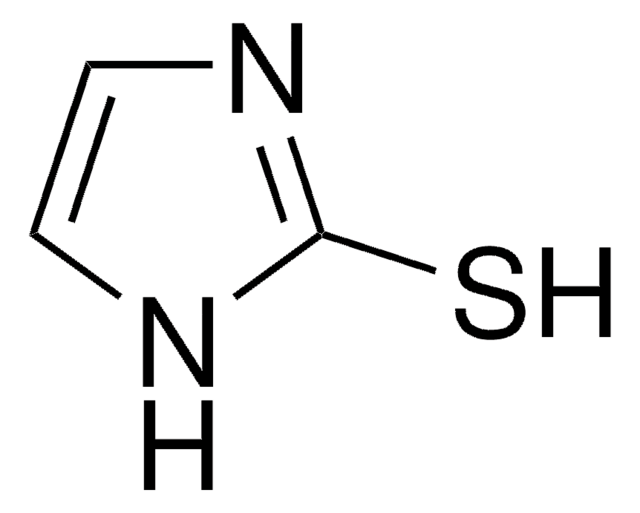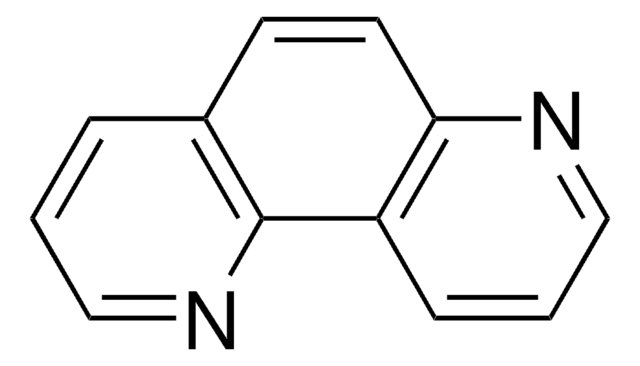M49887
1-Methylhydantoin
97%
Synonym(e):
1-Methylimidazolidin-2,4-dion, Dioxykreatinin, NSC 80560
About This Item
Empfohlene Produkte
Qualitätsniveau
Assay
97%
mp (Schmelzpunkt)
156-157 °C (lit.)
SMILES String
CN1CC(=O)NC1=O
InChI
1S/C4H6N2O2/c1-6-2-3(7)5-4(6)8/h2H2,1H3,(H,5,7,8)
InChIKey
RHYBFKMFHLPQPH-UHFFFAOYSA-N
Verwandte Kategorien
Anwendung
Reaktant für die Synthese folgender Substanzen:
- Selektiver Angiotensin-II-AT2-Rezeptoragonist mit reduzierter CYP450-Hemmung
- Allosterische Glucokinaseaktivatoren
- Hydantoinderivate mit antiproliferativer Aktivität
- Thiohydantoine
- P2X7-Rezeptor-Antagonisten
Lagerklassenschlüssel
11 - Combustible Solids
WGK
WGK 3
Flammpunkt (°F)
Not applicable
Flammpunkt (°C)
Not applicable
Persönliche Schutzausrüstung
Eyeshields, Gloves, type N95 (US)
Analysenzertifikate (COA)
Suchen Sie nach Analysenzertifikate (COA), indem Sie die Lot-/Chargennummer des Produkts eingeben. Lot- und Chargennummern sind auf dem Produktetikett hinter den Wörtern ‘Lot’ oder ‘Batch’ (Lot oder Charge) zu finden.
Besitzen Sie dieses Produkt bereits?
In der Dokumentenbibliothek finden Sie die Dokumentation zu den Produkten, die Sie kürzlich erworben haben.
Unser Team von Wissenschaftlern verfügt über Erfahrung in allen Forschungsbereichen einschließlich Life Science, Materialwissenschaften, chemischer Synthese, Chromatographie, Analytik und vielen mehr..
Setzen Sie sich mit dem technischen Dienst in Verbindung.